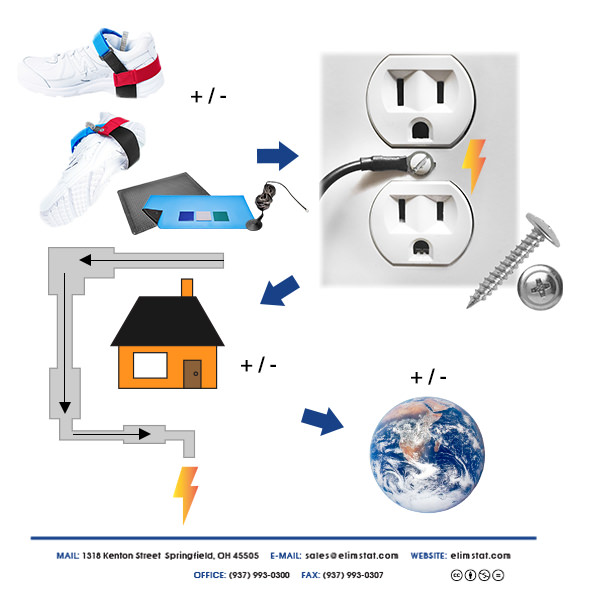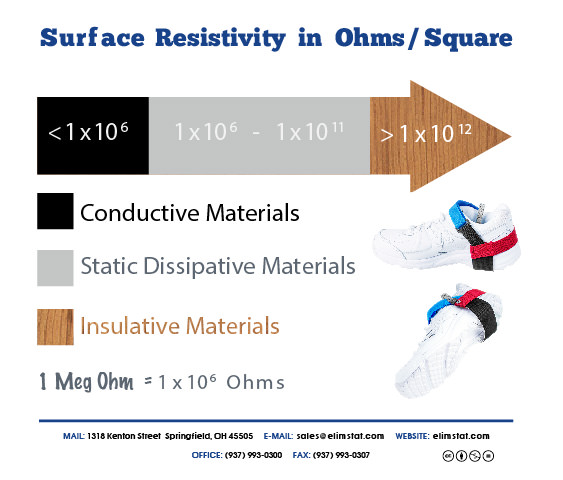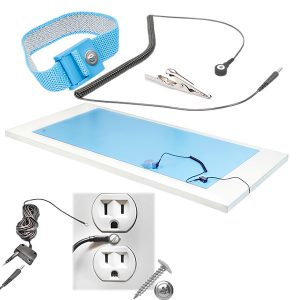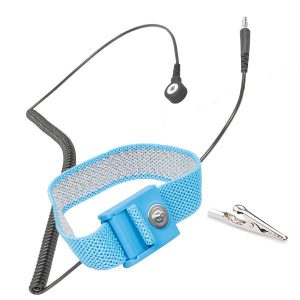Prices
| Qty 1-9 | Qty 10-99 | Qty 100+ |
|---|---|---|
| $7.48 USD | $6.52 USD | $5.98 USD |
7 in stock
• Blue Velcro Strap looped into D-Ring Closure. Red Spandex® Heel Strap for Secure fit onto the heel.
| Qty 1-9 | Qty 10-99 | Qty 100+ |
|---|---|---|
| $7.48 USD | $6.52 USD | $5.98 USD |
| Dimension | Specification |
|---|---|
| Heel Cup Ground Contact | ESD Resistance is 104 to 106 Ohms |
| Heel Cup Material | Reinforced Black Carbon Loaded Rubber |
| Skin Ground Contact | Knitted Ribbon with Silver Conductive Monofilament attached to the Heel Cup is tucked into sock |
| Resistor | 1 Meg Ohm Resistor is Sewn into Silver Knitted Ribbon |
| Ankle Adjustment | Red Spandex® Heel Strap and Blue Velcro Strap looped into D-Ring Closure on shoe. |
| Charge Decay | 5000 volts to zero in less than 2 seconds |
Heel Grounders are a specific type of shoe grounder that use a conductive black carbon rubber heel to ground the shoe.
Materials like wood and wool are also insulating. Walking up and down a wool carpet with tennis shoes can easily cause us to hold static on our skin and clothes.
When we go to handle electronics we want to make sure we are not electrically isolated, but instead electrically bonded (also known as “being grounded”). This allows those static electrons to discharge from our clothes and skin to the ground beneath our feet. Wearing a heel grounder connected to an electrically bonded floor or floor mat is a common way to “ground” large assembly lines.

When used with a grounded floor, anti static mat roll laid out as “floor runner”, or a workstation floor mat the shoe grounder dissipates static from you into the electrically bonded surface it makes contact with

Connected to the tire-grade rubber heel is a conductive silver thread that tucks into your sock. The thread draws static electricity from your skin’s surface so that it grounds you.
The way this works is that as the heel grounders make contact with electrically bonded surfaces (mats or floors) the electricity that was static on your skin’s surface is dissipated- literally falls into the Earth under the force of gravity.
1 Meg Ohm = 1 x 106 Ohms

Made with a 1 Meg Ohm Resistor sewn into it, the silver knitted ribbon slows down an electrostatic discharge event (ESD) from a highly charged ungrounded surface from discharging instantaneously through the ribbon.
Typically a 1 Meg Ohm Resistor slows down an electrostatic discharge (ESD) a few more milliseconds than if it were not present.


